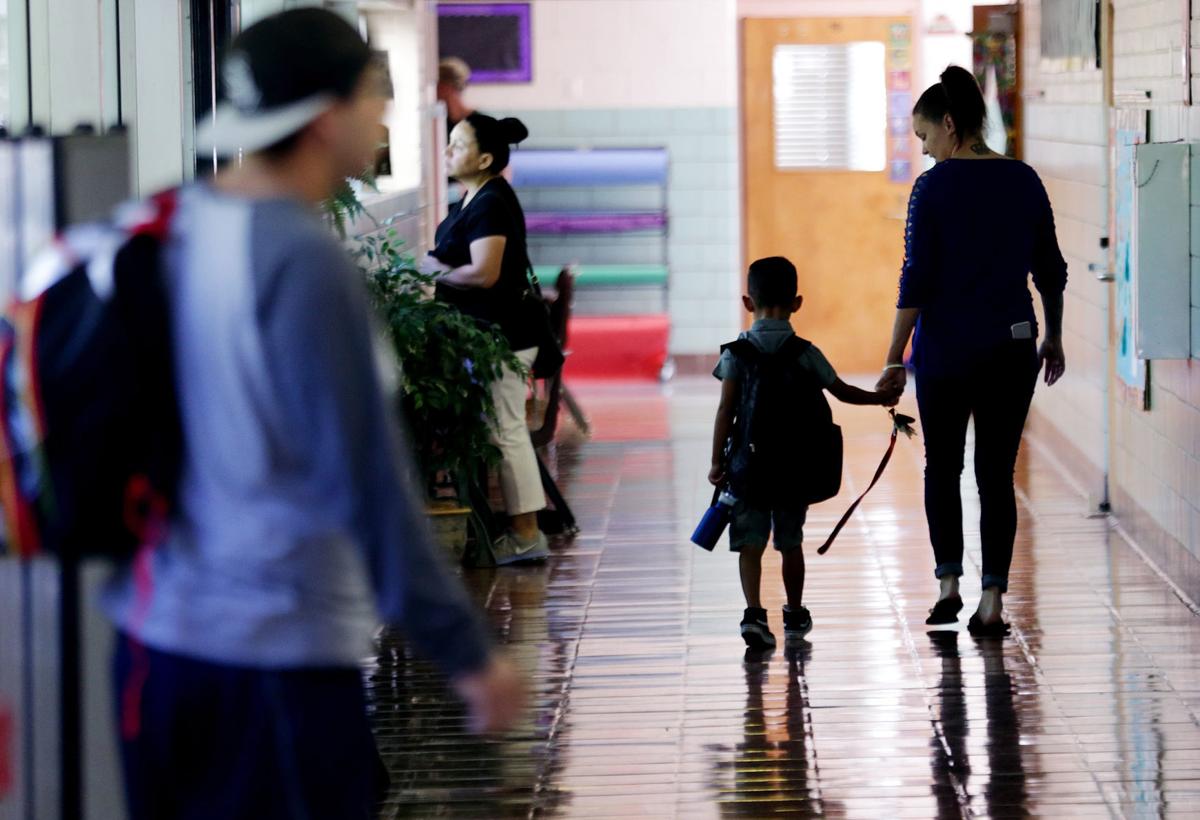A new statewide survey suggests a majority of voters is willing to increase sales taxes for education — but not by as much money as some are seeking.
The poll done by Data Orbital also finds that a majority wants “results-based funding,” which the Arizona Chamber of Commerce and Industry, sponsor of the survey, defines as tying increasing dollars to improved academic performance.
And it finds strong public support for the plan crafted by Gov. Doug Ducey and enacted by the Legislature to boost teacher salaries an average of 20% by 2020.
The survey comes as the Helios Foundation is working to write a measure that would raise $1.5 billion a year for education through a combination of increased sales and property taxes. Foundation officials are hoping to present a plan to lawmakers to put on the 2020 ballot.
But adding property taxes to the mix could prove fatal, with the survey finding its use as a source of revenues is far less popular than sales taxes and income taxes.
It also comes as the Center for Economic Progress is coming up with its own plan to ask voters to pump more money into education.
Last year the organization attempted to put a measure on the ballot for an income tax surcharge on the most wealthy Arizonans. The state chamber filed the successful lawsuit that kept it off the ballot.
David Lujan, the center’s executive director, said the form the 2020 initiative will take is still being decided, with ongoing research to find something that would be acceptable to voters.
But Lujan said it could be similar to last year’s plan, which sought to increase income taxes on individual earnings of more than $250,000 a year, a plan that would raise $690 million a year without costing the vast majority of voters a penny.
“What we found is it had strong support from Arizonans,” Lujan said of that proposal.
The chamber’s poll, however, asked only whether voters prefer sales, income or property taxes to fund education and did not inquire about a plan to tax just high earners.
Chamber spokesman Garrick Taylor said his organization isn’t necessarily opposed to putting more dollars into K-12 — and even doing it with some sort of tax hike.
“But we’ve also supported the idea that results should be valued and proper investments should follow those results,” Taylor said.
He said, though, any academic improvement results used to put new dollars into classrooms should include special financial consideration for schools with “obstacles,” such as a high percentage of students in poverty.
Of note in the survey is how much more voters are willing to tax themselves.
Of the 550 people questioned in the telephone poll last month, 57.7% said they would support taking the current 0.6-cent sales tax now dedicated for education and raising that to a full penny.
That parallels a plan proposed by Sen. Sylvia Allen, R-Snowflake, who chairs the Senate Education Committee.
But there are others, like Sen. Andrea Dalessnadro, D-Green Valley, who have argued that the approximately $473 million the tax hike would raise is nowhere near enough to make up for the funds that were cut from education during the Great Recession.
There is, however, a risk of going bigger: The survey shows a drop of support, to 45.2%, for a proposal to take that 0.6-cent levy and increase it to 1.5% to add $1 billion a year in funding.
One survey question may be an indication of the depth of public support for more education.
The chamber had Data Orbital point out that the Legislature put an additional $600 million-plus into education this past year, though the question did not inform respondents that figure includes not just new money but also what the state is required to fund for both inflation and student population.
And then the survey goes on to state that current K-12 funding amounts to about $5.5 billion of the $11.8 billion state budget.
Yet even with those prompts, 52.4% of those questioned still believe that more funding for education is necessary.
“It’s not a runaway on that question,” Taylor said. “But still a majority, even when given the details of recent budget deals, still believe that more dollars are needed.”
The survey has a potential margin of error of 4.2%.





